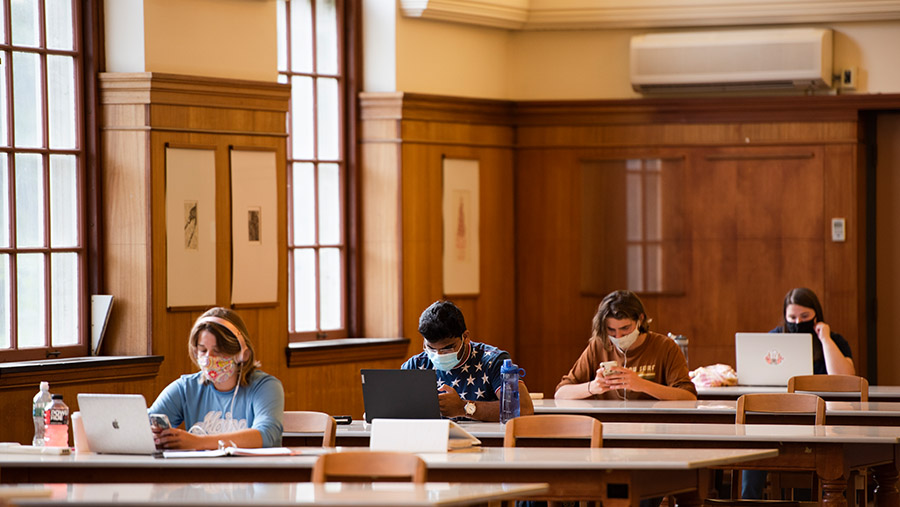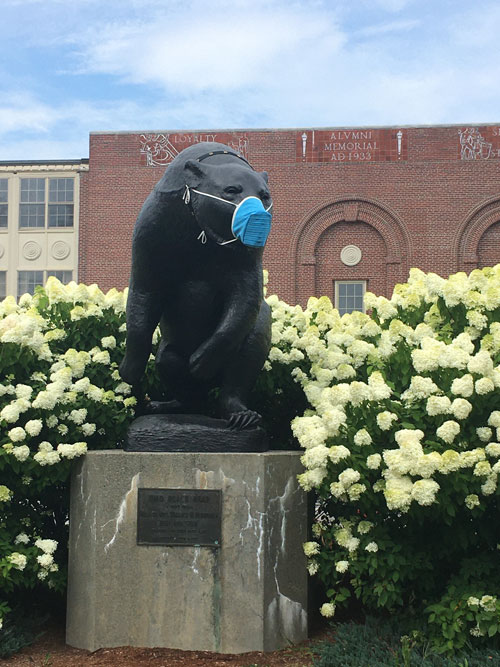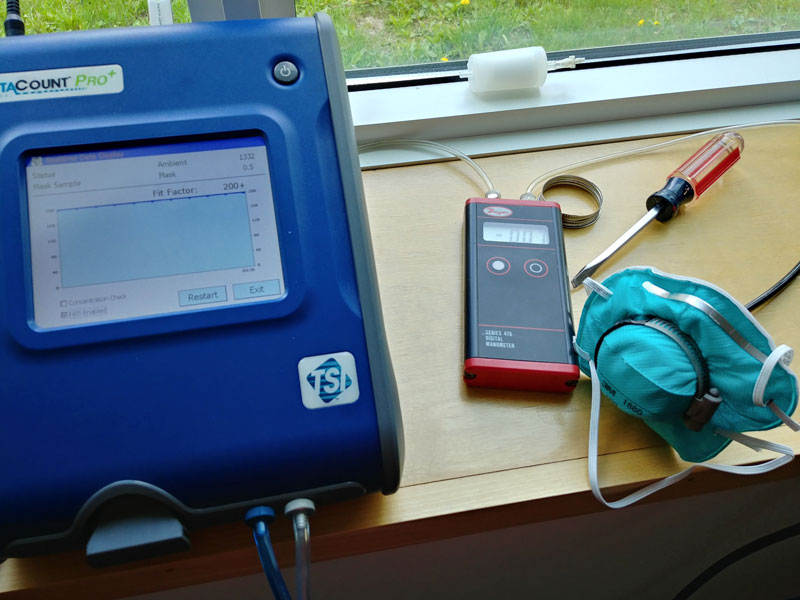
How Quickly Things Moved
University Archivist seeks to document one of the most dynamic living histories of our time
Story by Michael G. Dunn. Originally published in the 2020 issue of the Raymond H. Fogler Library Magazine.
Think back to early March of 2020. Concepts like social distancing and masks were only beginning to enter the public consciousness. You wouldn’t have thought twice about going to a social gathering, a restaurant or a store.
How would you convey to future generations the chaos, the fear, the uncertainty, the relentless pace of the world altering events you’ve lived through?
This once-in-a-century experience is what Special Collections and Maine Shared Collections Librarian Matthew Revitt is working to document with the UMaine COVID-19 Community Archive, which is hosted online in Digital Commons, the University’s institutional repository.
As of December 2020, the Archive holds nearly 1,000 items that have been downloaded more than 6,200 times from around the world.
Via email, we discussed with Matthew Revitt the philosophy behind this living history collection and how the greater University of Maine community may participate in capturing the ongoing story of COVID-19.

What inspired you to collect the stories of COVID-19?
As the major historical event of our time, I wanted to be proactive and ensure I captured and preserved material that, in years to come, researchers could use to study how the UMaine community responded to the pandemic, both as an institution and as individual stakeholders. I knew as the University Archivist it was my responsibility to capture material from this time and not leave gaps for future researchers and Fogler Special Collections staff.
I was also inspired by the work of other academic institutions documenting COVID-19 in their communities, particularly the University of Minnesota and Carnegie Mellon University.
What value do you believe they will hold for future generations?
I think anyone reviewing the material in the Archive will get a sense of how quickly things moved with COVID-19, from a few references on the UMaine website starting in late January to the transition to remote learning in March, to the virtual shutdown of the campus later that month. The content will also bring to life some of the difficulties faced by individuals of the UMaine community, students not being able to properly say goodbye to friends and the sense of uncertainty many of us felt.
I also think the material will show the positive way faculty adapted to COVID-19, particularly the transition to remote teaching and how they quickly incorporated the subject of COVID-19 into their curriculum. The content will also illustrate the ways both the University of Maine and University of Maine System responded to COVID-19, providing regular updates via their online community guidance and virtual town hall meetings.
Going forward with the plans for returning to campus for the 2020 fall semester, I hope the material will show how the UMaine Community came together to allow for a safe return.
As the Archive shows, in the months and weeks leading up to the start of the semester, the University community (oftentimes working remotely) came together to plan a reopening that was as safe as possible. The Archive documents and recognizes the work of individuals from across the system who came together in teams to organize and coordinate efficient and consistent testing, arrange for remote learning spaces and equipment and set clear expectations using up-to-date CDC guidelines. Information was shared regularly and freely with students, faculty and staff to create a level of transparency and certainty in uncertain times.

What has the experience been like for you as these stories and accounts come in and you’ve been reading them?
Building the COVID-19 Archive from scratch in Digital Commons has been a very rewarding professional experience, including learning new skills for capturing digital content. It’s also work I was largely able to accomplish from home, while still remaining connected to the UMaine community, as I sought material to add. I’m hoping to build on these connections in the future when adding content to and promoting the University Archive. Working on the COVID-19 Archive has also allowed me to connect with library and museum professionals from across the state as part of the Maine Community Archives Collaborative, which has met weekly during the pandemic to discuss our experiences of capturing COVID-19 related content. I presented at the Collaborative’s “All in This Together: Preserving Maine’s COVID-19 Memories” webinar in August.
The COVID-19 Archive has also had quite a bit of exposure, including being mentioned by the University of Maine President in her communications, stories in local newspapers and TV stations and in the Maine Archives and Museums newsletter. The Archive was featured in the Society of American Archivists Archival Outlook magazine, and I was on a nationwide panel of presenters discussing my experiences of building a COVID-19 archive as part of a webinar organized by the worldwide library collective OCLC.
How might people contribute? Who may contribute? What stories are you looking for?
I’m interested in any UMaine generated material that relates to COVID-19, be it emails, reports, webpages, social media, videos or photos from units and departments across campus. And also content from individual students, faculty, staff, researchers and alumni, including examples of coursework, curricula and syllabi.
I’m also interested in any personal perspectives from the University community regarding their experiences during COVID-19 that show what it was like to live through this time. I’m defining “community” as anyone with a connection to UMaine, so very broadly.
The UMaine COVID-19 Community Archive contains a wide range of material relating to the UMaine community’s response to COVID-19, including administration communications, community guidance, individual departmental responses, examples of how faculty have adapted to COVID-19 and incorporated the subject into their teaching, photographs and videos and the personal perspectives of individual faculty, staff, students and alumni.
